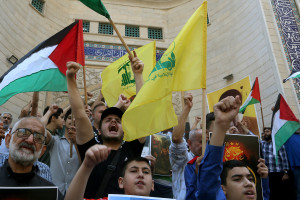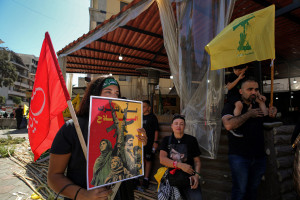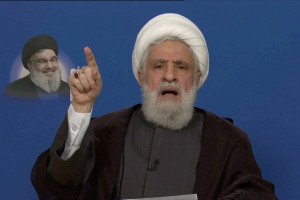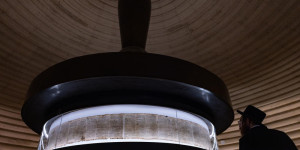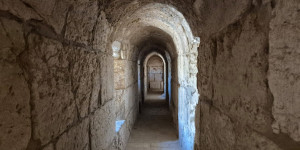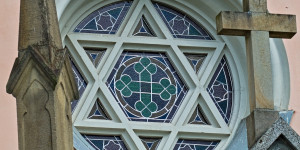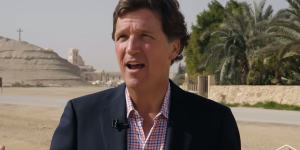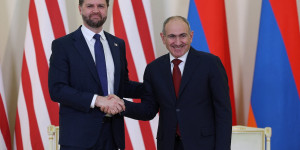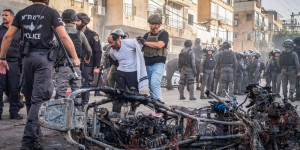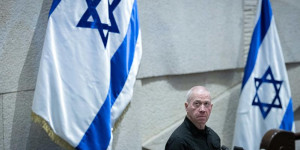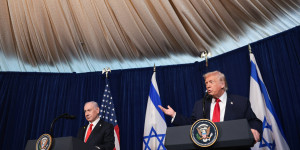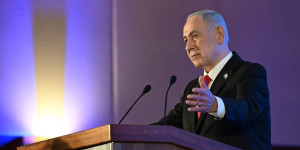US envoy Barrack says time for Israel ‘to comply' with Lebanon ceasefire agreement after meeting with President Aoun
Hezbollah continues rejecting calls to disarm, calling it ‘gift to Israel’
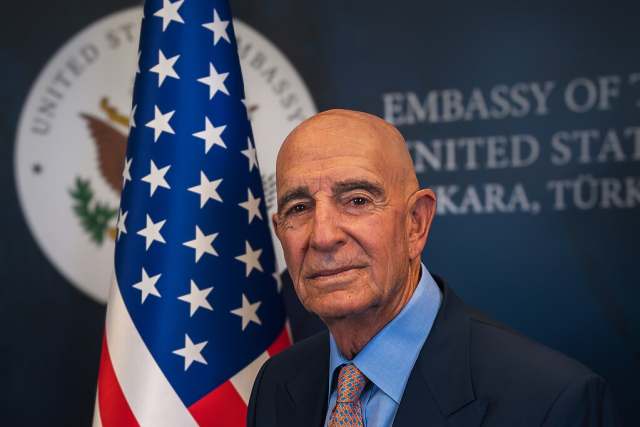
U.S. envoy Tom Barrack on Monday called for Israel to keep its part of the ceasefire with Lebanon following a meeting with Lebanese President Joseph Aoun.
“I think the Lebanese government has done their part. They’ve taken the first step. Now what we need is (for) Israel to comply with that equal handshake,” said Barrack, who also serves as the ambassador to Turkey and the special envoy to Syria.
Asked by reporters if he expected a full Israeli withdrawal, Barrack responded in the affirmative, saying, “The next step is we need participation on the part of Israel, and we need an economic plan for prosperity, restoration and renovation.”
Barrack was in Lebanon with Deputy U.S. Special Envoy to the Middle East Morgan Ortagus for meetings with Aoun and other Lebanese leaders, after the Lebanese Cabinet instructed the Armed Forces to draft a plan to disarm Hezbollah – the Shia terror group that also holds seats in parliament.
On Aug. 7, the Lebanese Cabinet endorsed several U.S. objectives, including “ensuring the sustainability” of the ceasefire agreement with Israel, as adopted in November 2024, and “the gradual end of the armed presence of all non-governmental entities, including Hezbollah, in all Lebanese territory.”
Hezbollah responded the same day, vowing to disregard it.
“We will act as if the decision does not exist,” the group declared, calling the move “a gift to Israel that leaves Lebanon exposed to the Israeli enemy with no deterrence.”
During a televised speech to a religious ceremony in Baalbek last week, Hezbollah Secretary-General Naim Qassem said the demand to disarm Hezbollah is “unacceptable.”
“We live in dignity together, and we build its sovereignty together – or Lebanon will have no life if you stand on the other side and try to confront us and eliminate us,” Qassem was quoted by Arab News as saying.
Qassem also accused foreign elements of influencing Lebanese politics, saying that the government was acting on behalf of “American-Israeli orders.”
“The government is implementing an American-Israeli order to end the resistance, even if it leads to civil war and internal strife,” he stated.
During that same speech, Qassem thanked Iran for “supporting us with money, weapons, capabilities, and media and political positions.”
Qassem’s remarks came after Iranian Security Chief Ali Larijani arrived in Beirut for high-level meetings. That visit led President Aoun to criticize foreign interference in Lebanese affairs.
“We reject any interference in our internal affairs,” Aoun said.
Israel maintains control of five strategic outposts within southern Lebanon that it insists are necessary to protect its northern communities.
The IDF has also carried out several strikes on Hezbollah positions, both south of the Litani River, an area which was to remain free of Hezbollah militants per the agreement, and north of the river, targeting sites believed to be preparing for renewed hostilities in violation of the ceasefire.
After an IDF strike over the weekend, Prime Minister Benjamin Netanyahu noted at a government meeting on Sunday that “Our activity in Lebanon is in accordance with the ceasefire agreement. According to this agreement, we are enforcing, with live fire, any violation and any attempt to rearm, by Hezbollah.”

The All Israel News Staff is a team of journalists in Israel.
You might also like to read this:


